Why immigration is central to the 2024 presidential election
Immigration is a hot button issue in 2024, as former President Donald Trump pushes for mass deportations, while Vice President Kamala Harris would revive a failed bill to address the southern border.
By Nathan Denzin | Here & Now
October 3, 2024
Republicans are ramping up attacks on Democratic immigration policies in 2024 as Election Day draws closer.
“If you think about it, only a mentally disabled person could have allowed this to happen to our country — anybody would know this,” said former President Donald Trump during a campaign event on Sept. 28 in Prairie du Chien.
Over 8.5 million people have been encountered at the United States-Mexico border since 2021, about 6 million more than during the Trump administration.
Republicans say those immigrants are taking jobs, committing crime and bringing illicit drugs into the country, a point Trump repeated in Prairie du Chien.
“No, no, they make our criminals look like babies. These are stone cold killers. They’ll walk into your kitchen, they’ll cut your throat,” he said. “These people are animals. Now they’ll say, ‘Oh that’s a terrible thing for him to say.’ No, no, these people are animals.”

At a rally in Prairie du Chien on Sept. 28, 2024, former President Donald Trump heavily emphasized the issue of immigration. (Credit: PBS Wisconsin)
State Rep. Chris Sinicki, D-Milwaukee, represents areas in the southern part of the Milwaukee metro area in the Wisconsin Assembly, and is also the chair of the Democratic Party of Milwaukee County.
“That rhetoric is dangerous not only to people at the border, but to immigrants that are already here,” Sinicki said. “When I watch the news and I see these families, these mothers with their children walking hundreds of miles to get to the border, they’re doing it for a reason.”
“The lives of people in many countries like Venezuela and Nicaragua, their lives have become almost intolerable,” said Benjamin Marquez, a political science professor at UW-Madison, with a focus on immigration and Latino populations.
“The native-born population has always reacted very negatively to large numbers of immigrants coming to the United States,” he added.
“It’s gotten to the point now where you’re walking down the street and you see people say, ‘You know, he’s got brown skin — I don’t trust this man,'” said Sinicki.
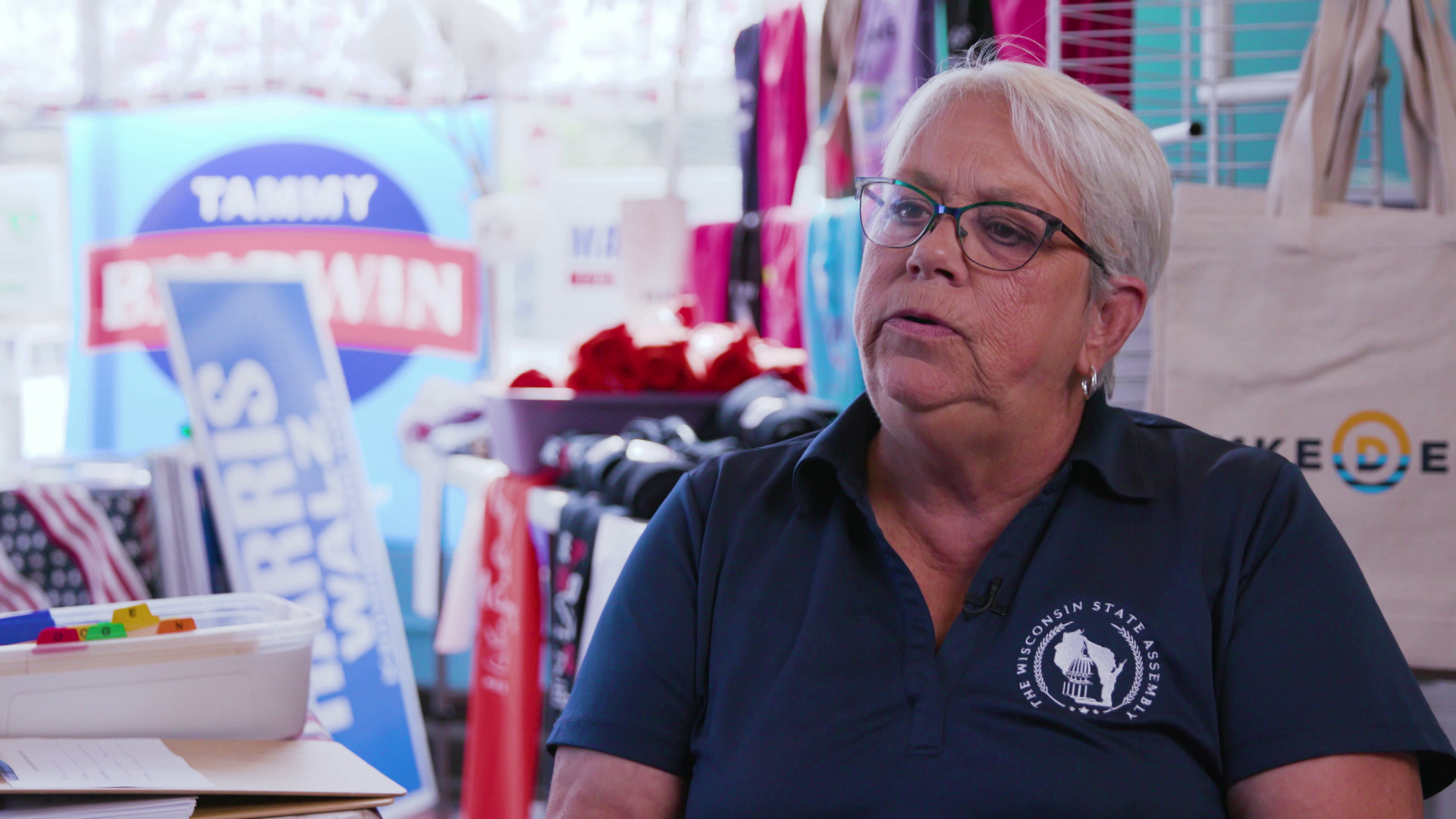
Wisconsin Rep. Chris Sinicki, D-Milwaukee, discusses the implications of rhetoric surrounding the issue of immigration for the 2024 election in Milwaukee on Sept. 25. “That rhetoric is dangerous not only to people at the border, but to immigrants that are already here,” Sinicki said. “When I watch the news and I see these families, these mothers with their children walking hundreds of miles to get to the border, they’re doing it for a reason.” (Credit: PBS Wisconsin)
“They tend to be people of color, so the threat is seen as more intense, as more consequential for the fate of the nation,” said Marquez.
That mindset became particularly clear when Trump falsely claimed Haitian immigrants were eating pets in Springfield, Ohio during a presidential debate on Sept. 10.
“They’re eating the pets of the people who live there,” Trump declared.
“Even though these accusations have no basis in fact, it flies politically,” Marquez noted.
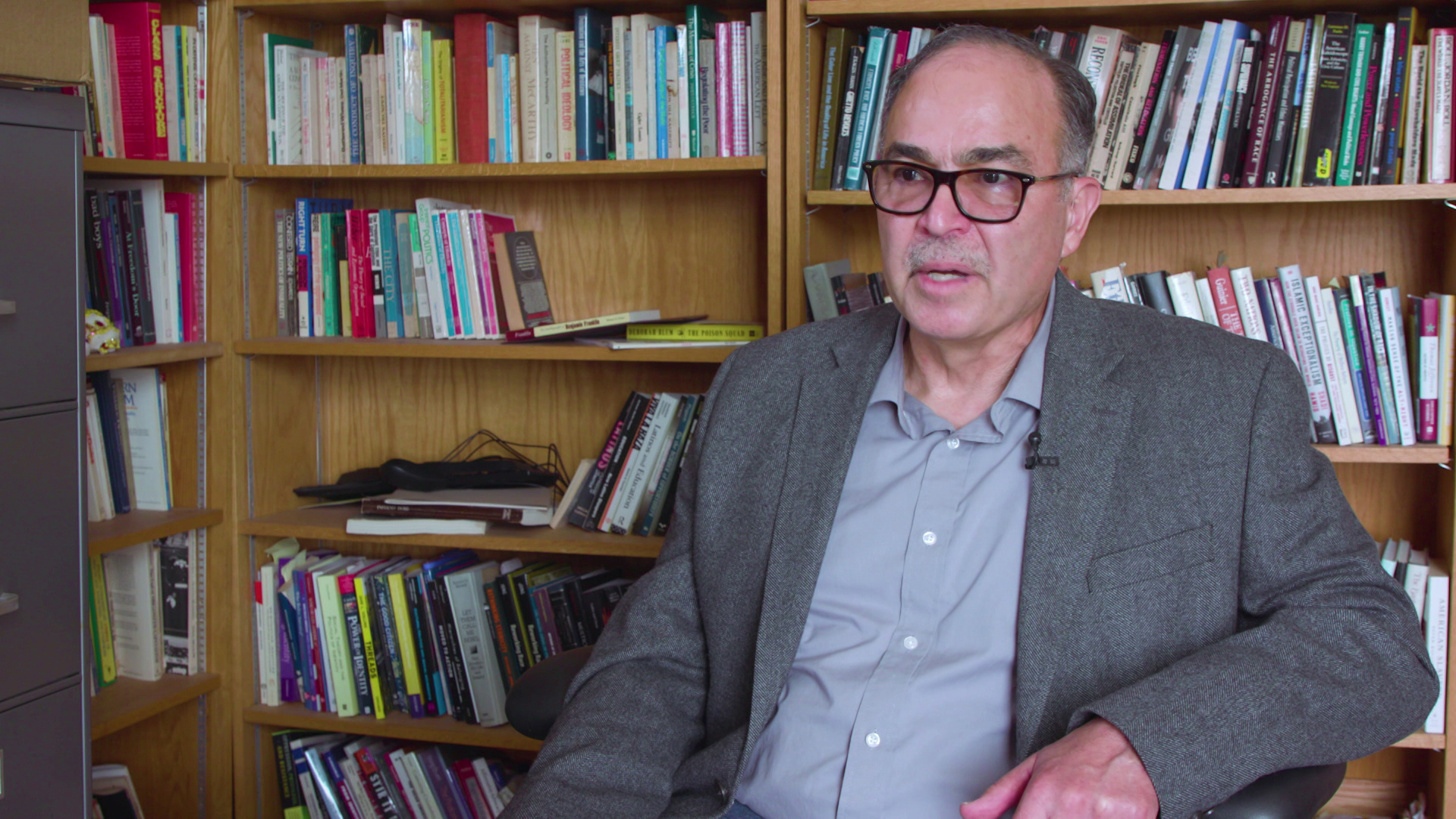
Benjamin Marquez, a political science professor at the University of Wisconsin-Madison, discusses the impact of incendiary immigration rhetoric on the livelihood of immigrant communities on Sept. 16, 2024 in Madison. “The lives of people in many countries like Venezuela and Nicaragua, their lives have become almost intolerable,” said Marquez. “The native-born population has always reacted very negatively to large numbers of immigrants coming to the United States.” (Credit: PBS Wisconsin)
Hilario Deleon is the chair for the Republican Party of Milwaukee County. He said concerns over immigration come up frequently when he is out in the community.
“I don’t think it’s racist to hear directly from American citizens about the concerns that they might have, whether it’s true or not” Deleon said. “This isn’t something that people are just making up or they’re just, ‘You know what, I’m just going to roll out of bed and I’m going to just go out there and just blast this this entire group of people that are coming in.'”
Polls have shown that Republicans are likely to be much more concerned about immigration than Democrats.
Deleon said he’s heard concerns in Milwaukee that undocumented people are receiving help before local neighborhoods.
“These are people who live in these neighborhoods that feel like they’re being forgotten,” he said. “They feel like their voices aren’t being heard and they’re being pushed aside.”
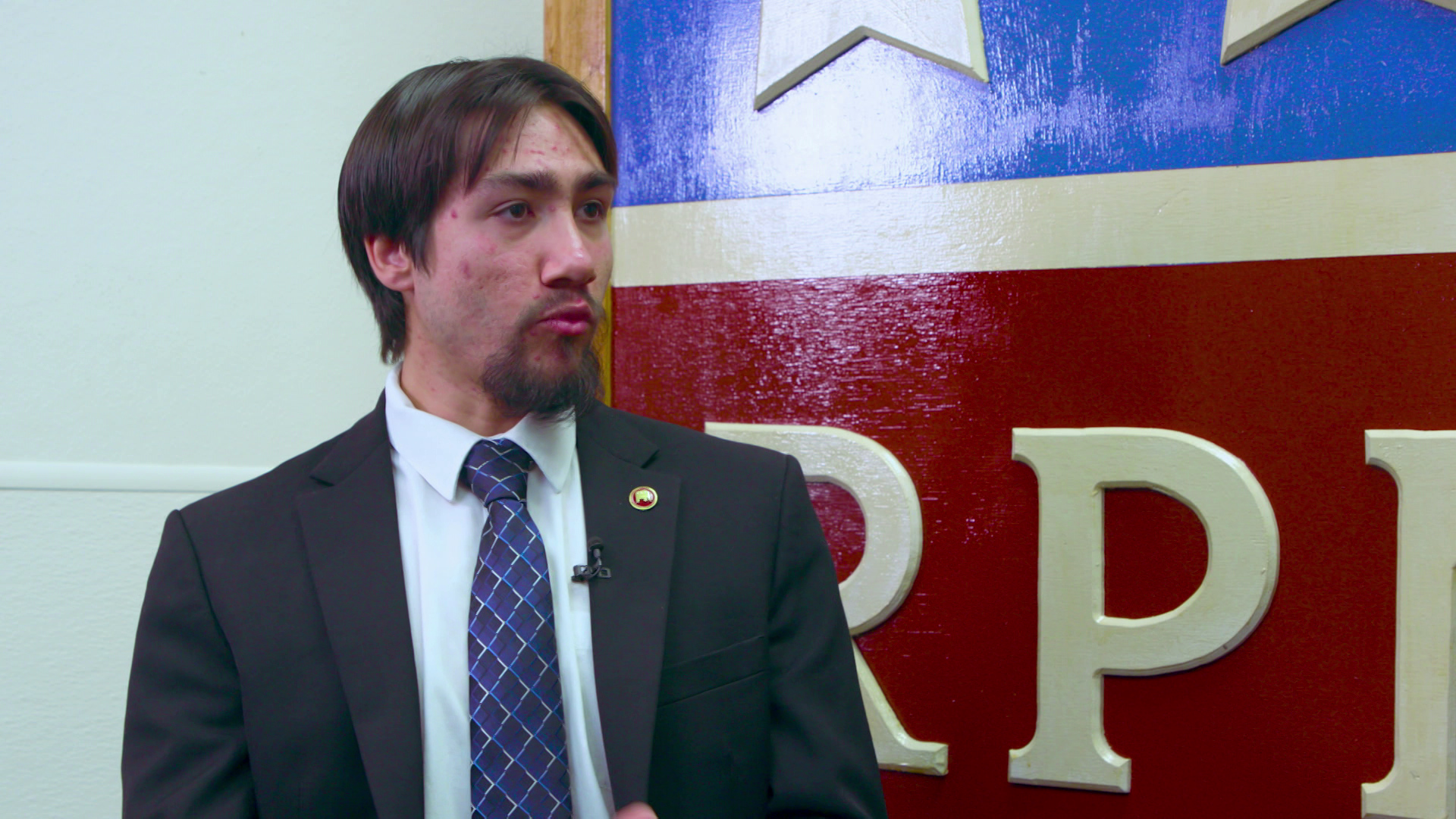
Hilario Deleon, chair of the Republican Party of Milwaukee County, discusses concerns in the community about immigration on Sept. 18, 2024 in Milwaukee. “These are people who live in these neighborhoods that feel like they’re being forgotten,” Deleon said. “They feel like their voices aren’t being heard and they’re being pushed aside.” (Credit: PBS Wisconsin)
Deleon said concerns include illegal drugs like fentanyl coming in through the southern border and undocumented people committing crime.
But data has shown that most smuggled drugs, including fentanyl, are brought by American citizens through official ports of entry in their vehicles, and that undocumented migrants are much less likely to commit crime, violent or nonviolent, than natural-born U.S. citizens.
“They are not going to go out and commit serious crimes because they are hoping to become legal citizens. If they commit these serious crimes they cannot become a citizen in the United States,” Sinicki said.
“We’re already dealing with enough crime as it is with the general citizen population here. Why would we want to add more crime on to that problem already?” said Deleon.
The Trump plan, if elected, hinges on a policy of mass deportation for the roughly 11 million undocumented migrants in America.
“The largest deportation operation in the history of our country, because we have no choice,” Trump said.
“I don’t think many people have given serious thought to what it would take to deport 11 million people,” noted Marquez.
- U.S. government data show there were more than 8 million people encountered at the United States-Mexico border since 2021 under the Biden administration. (Source: U.S. Customs and Border Protection)
- National data show that undocumented immigrants are less likely to commit crime, nonviolent or violent, and even less likely to be convicted and imprisoned than natural-born U.S. citizens. (Source: Standford University, CATO Institute)
And if they were all deported, Marquez said industries around the country would be hurt.
“I mean, who’s going to process meat in this country? Who’s going to work the dairy farms?,” he asked.
Studies have found that immigrants often make up more than three-quarters of labor on dairy farms.
“The jobs they’re taking are jobs that most people don’t want to do,” Sinicki said. “They’re working in the fields. They’re working in the kitchens. They’re cleaning, you know, cleaning up manure.”
“There’s all these American citizens here that could use a job,” Deleon said.
“I couldn’t work in a dairy farm — I wouldn’t last a couple of days,” said Davorin Odrcic, an immigration attorney who works on asylum cases and said Republican rhetoric has been an issue for some time.
“I’m seeing on one side this intense hate. I don’t know how else to put it,” he said.
But Odrcic also said he hasn’t seen much action taken by Democrats.
“They see things more through electoral lens of ‘We need to get people excited,”’ he said.
Odrcic pointed to a Biden administration rule that would allow non-citizen spouses and children to stay in America. Announced in June, that policy was implemented in late August.
“My question to Democrats is. ‘Why did you enact this in the summer of an election year? Why wasn’t this enacted within the first week of your administration?'” Odrcic asked.
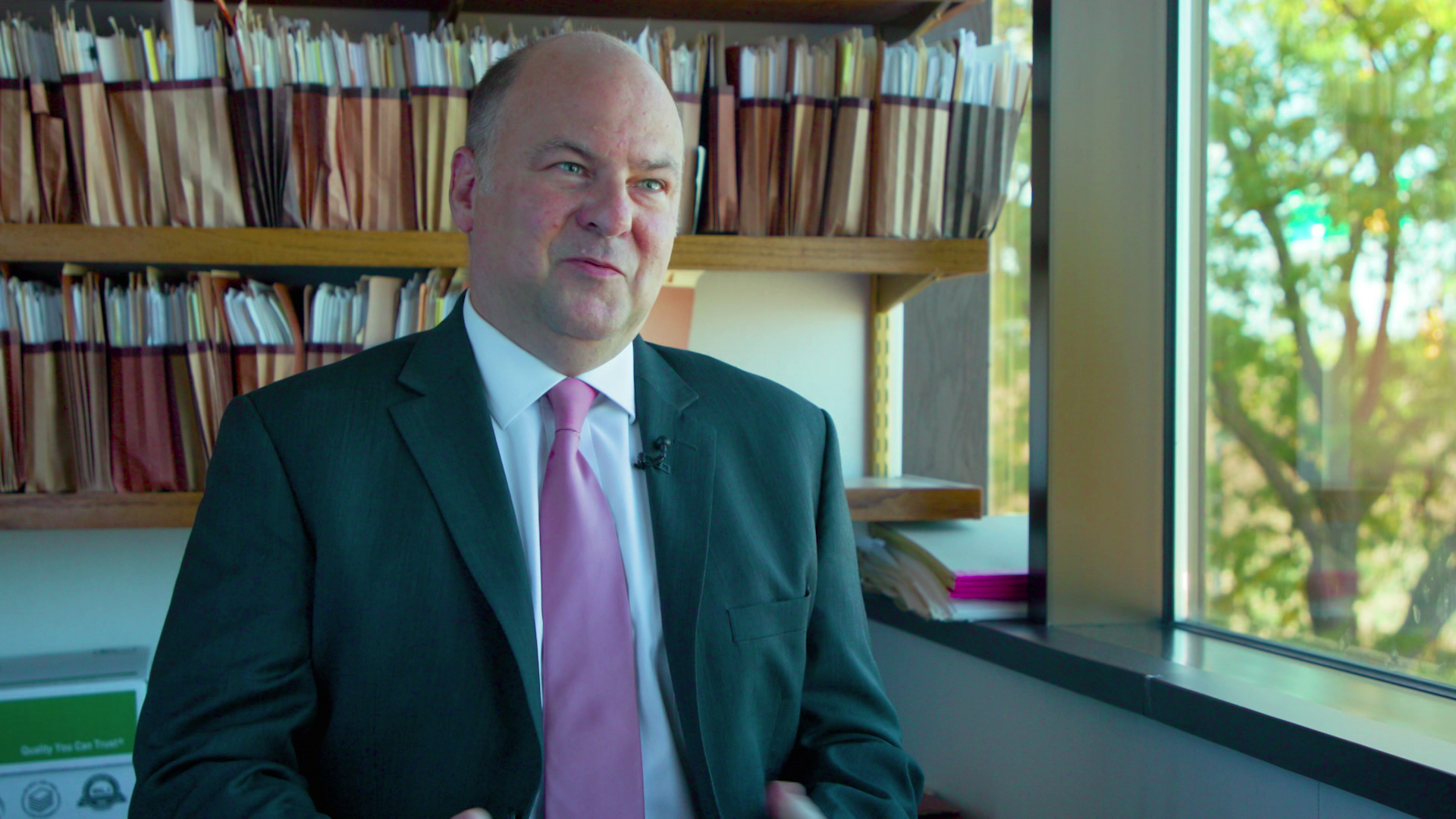
Davorin Odrcic, an immigration attorney in Milwaukee, discusses political rhetoric on immigration from the Trump campaign on Sept. 16, 2024 in Madison. “I’m seeing on one side this intense hate. I don’t know how else to put it,” Odrcic said. (Credit: PBS Wisconsin)
He said that there is a fundamental misunderstanding about how U.S. border and asylum process work, which leads to unproductive political debates.
“I don’t think that folks truly realize that how difficult it is to be granted asylum,” said Odrcic.
In order to be granted asylum, an immigrant has to prove to a judge your situation fits a very narrow definition of why they can’t go back to their home country. In the interim, federal law allows asylum seekers a temporary protected status to remain in the U.S., but even scheduling an appointment with a judge takes years.
“Earlier this week I was at the Chicago asylum office for an interview. That application was filed in April of 2016 — so eight and a half years,” Odrcic said in mid-September.
In January, a bipartisan border bill proposed adding 4,300 asylum officers and 100 immigration judges to ease waits. But Trump came out in opposition of the bill, and it was never passed into law.
“But I never would have voted for that bill. It was so bad,” Trump said.
“You’re looking at the numbers versus the resources that aren’t keeping up with the demand,” said Odrcic.
On her campaign website, Vice President Kamala Harris says she would bring back this bill if elected. She has also signaled support for keeping even tougher asylum rules ordered by President Joe Biden in June. Since then encounters have decreased by about 55%.
“Democrats cannot afford to be branded as advocating, you know, an open border, ‘Just come on in and you’re home free,'” Marquez said.
Only time will tell which plan voters prefer, and if the winner will actually improve conditions at the border.
 Passport
Passport




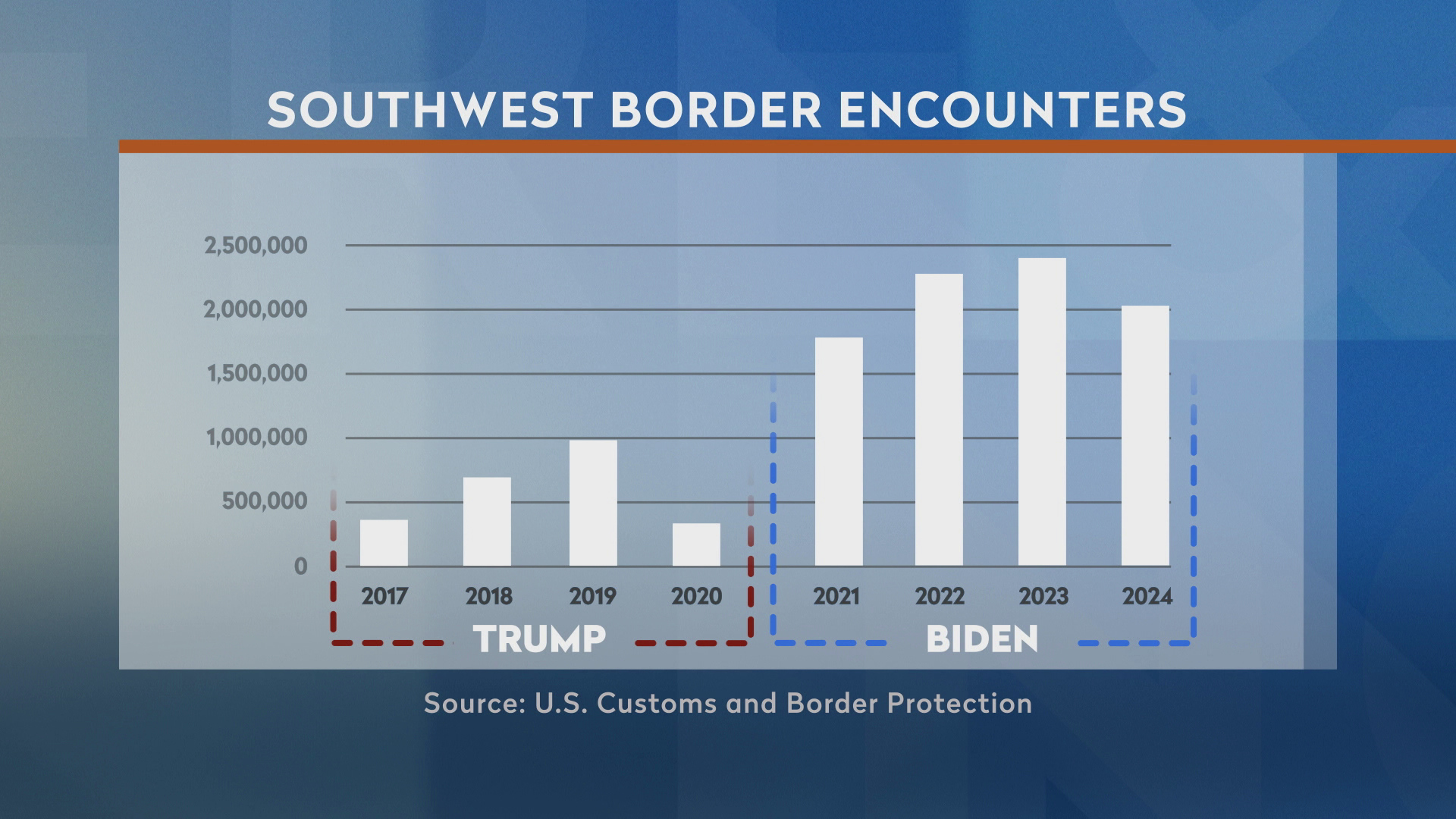
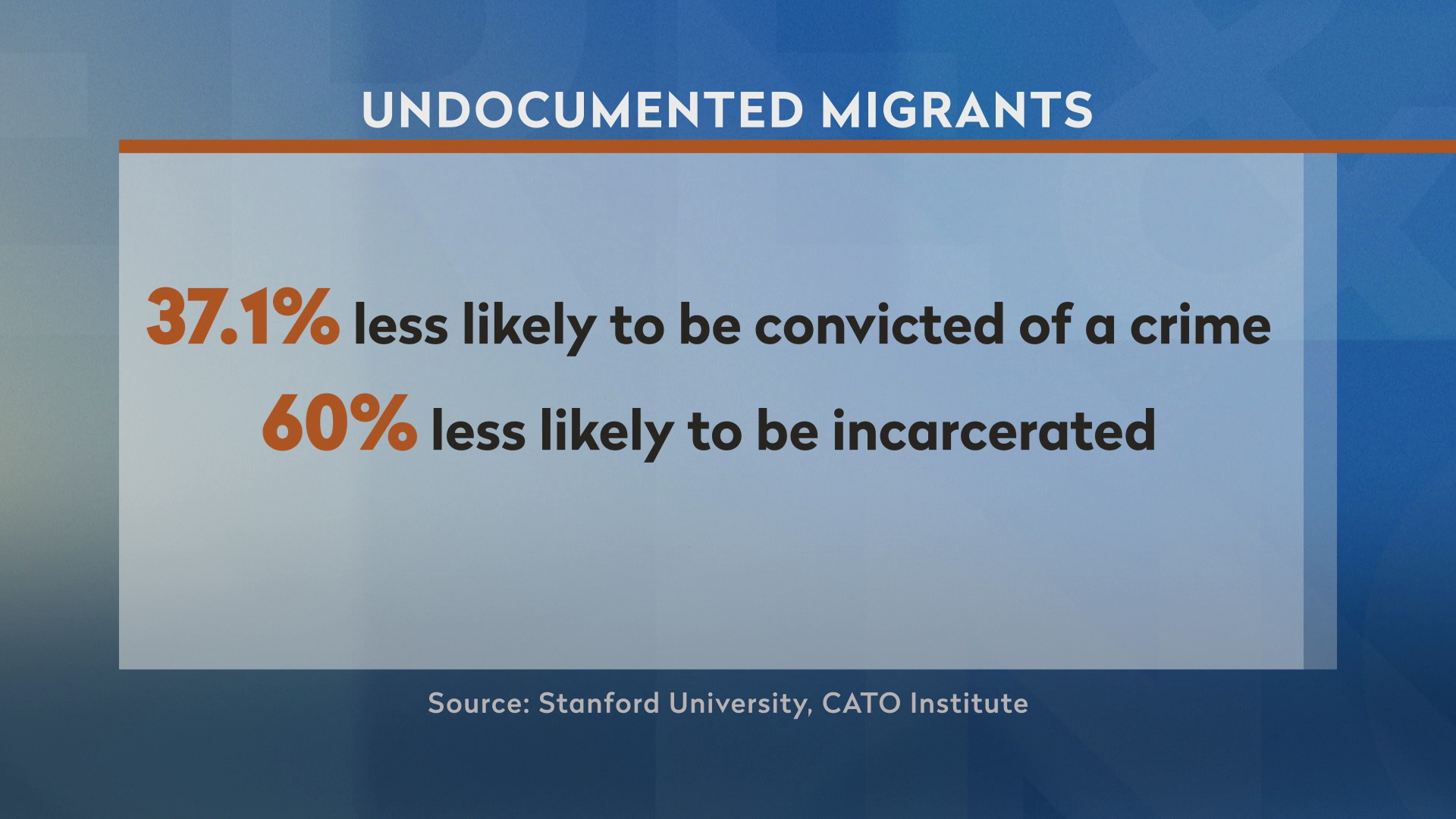
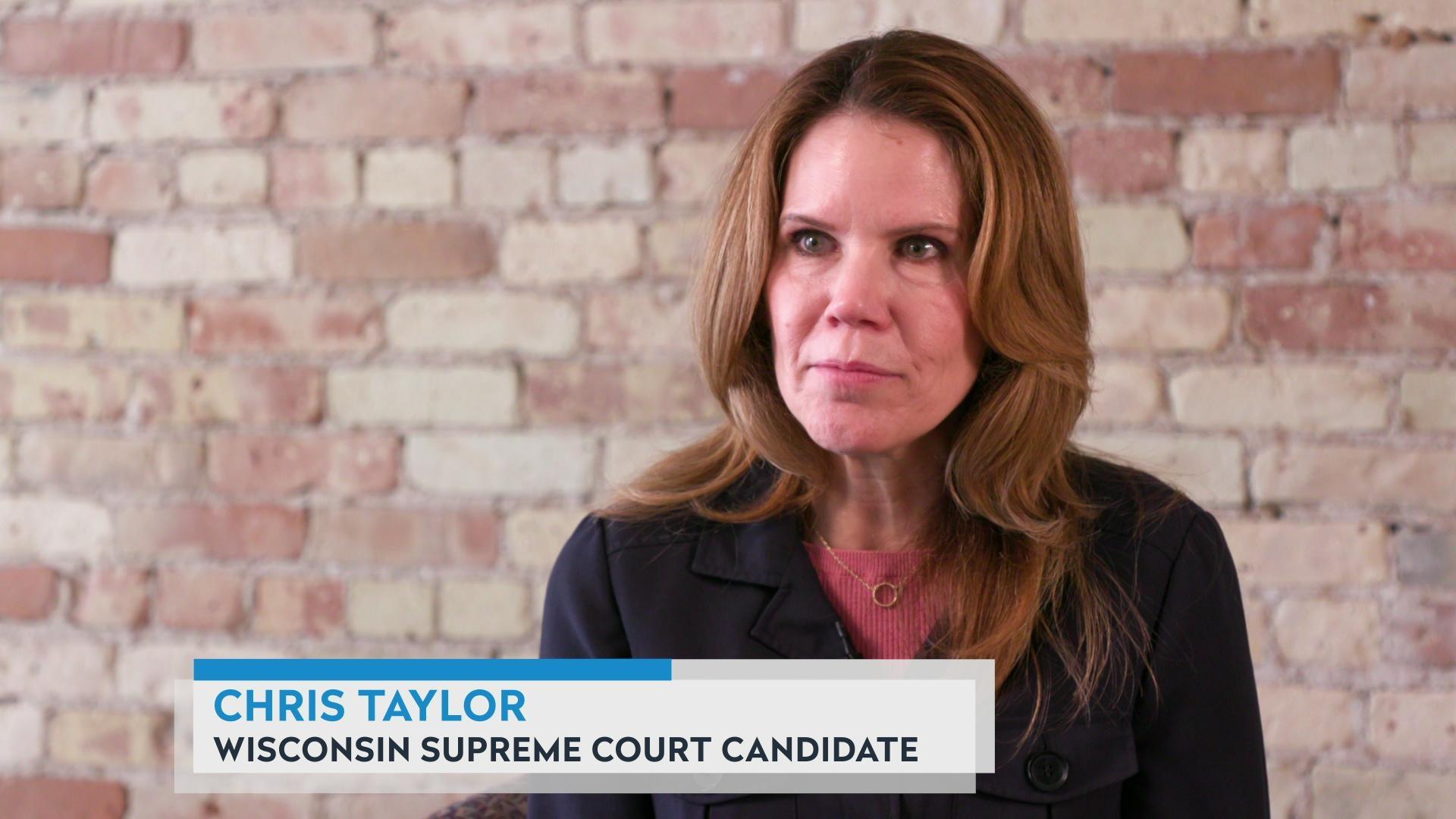
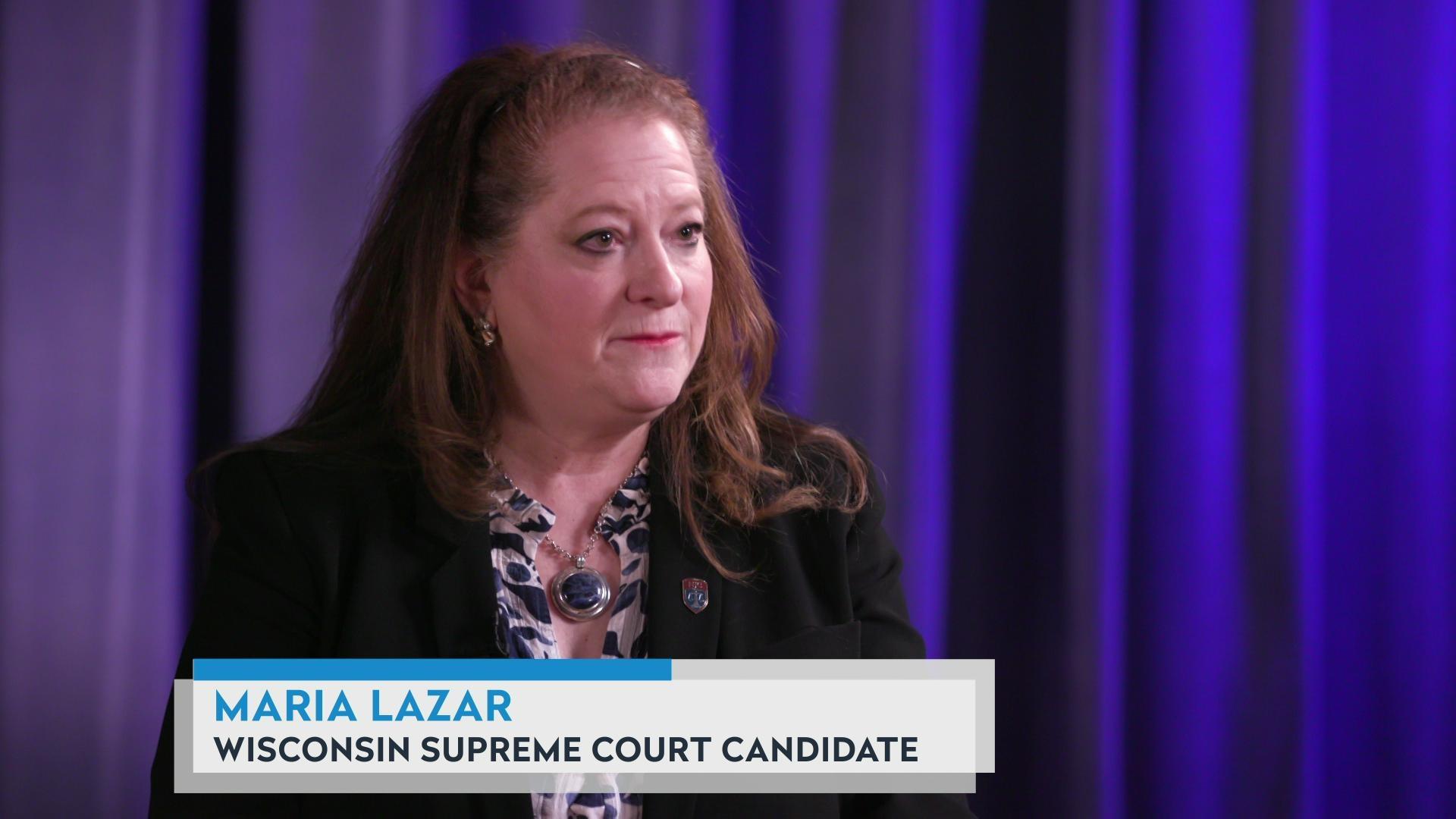

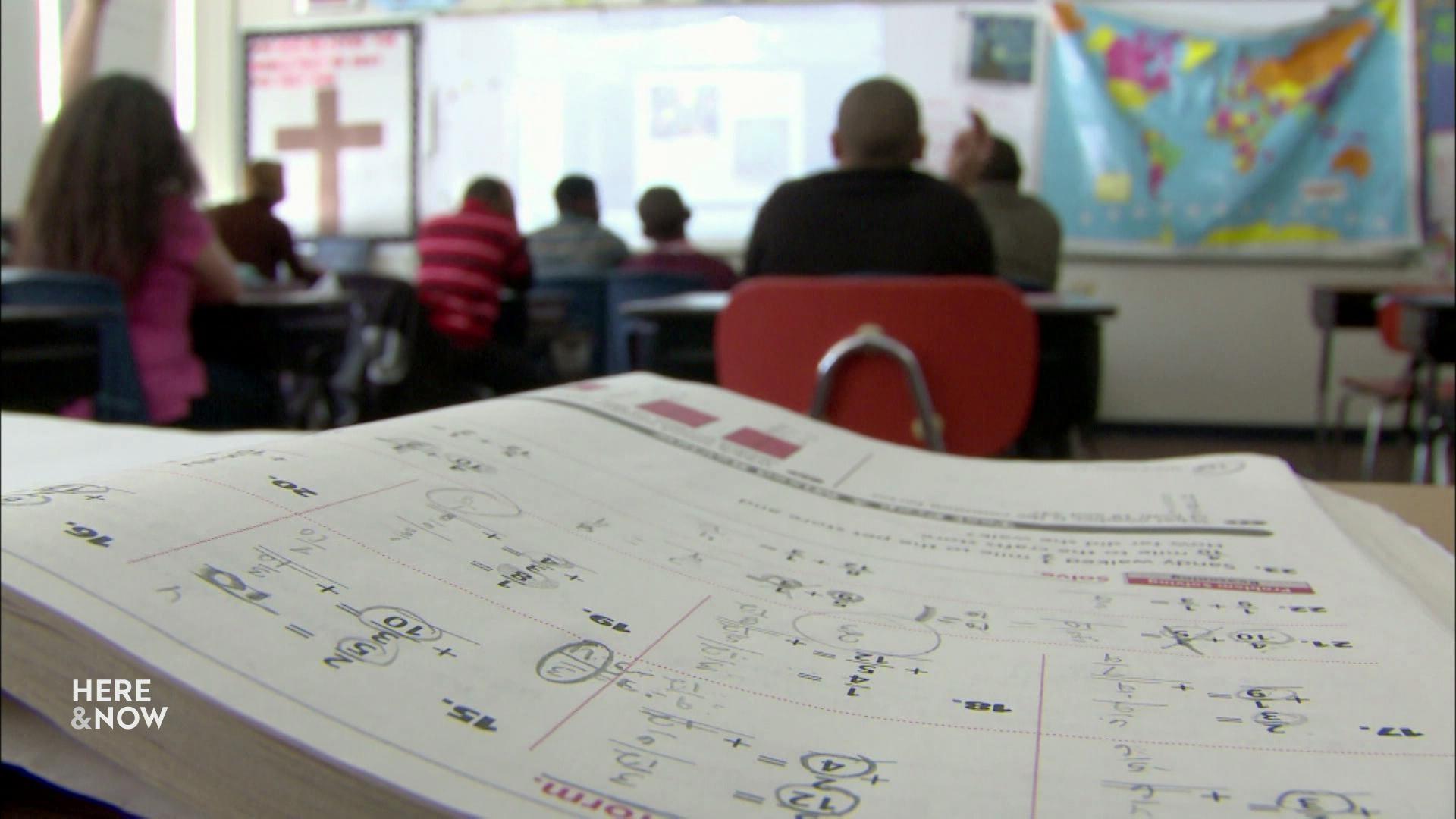
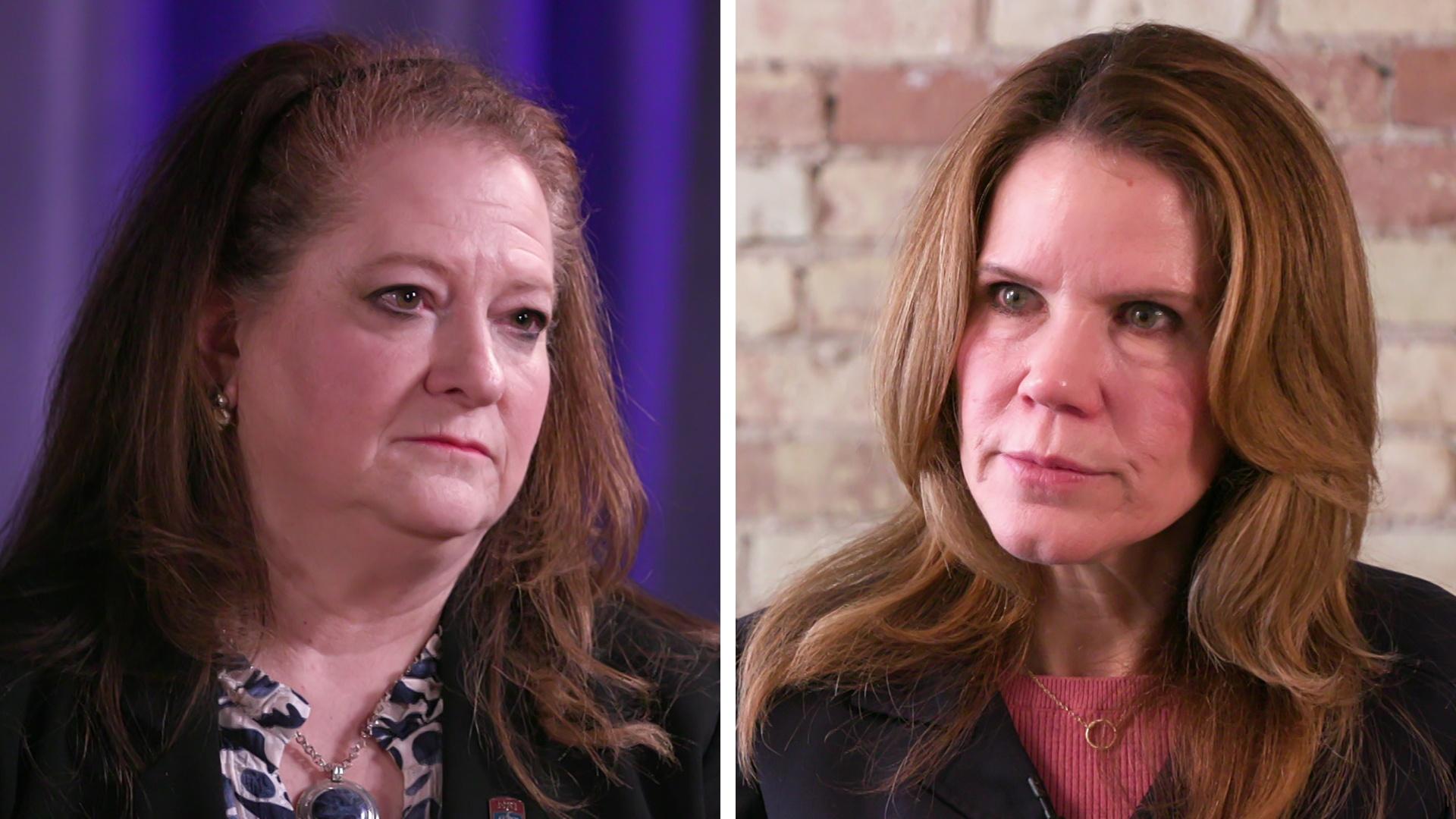


Follow Us